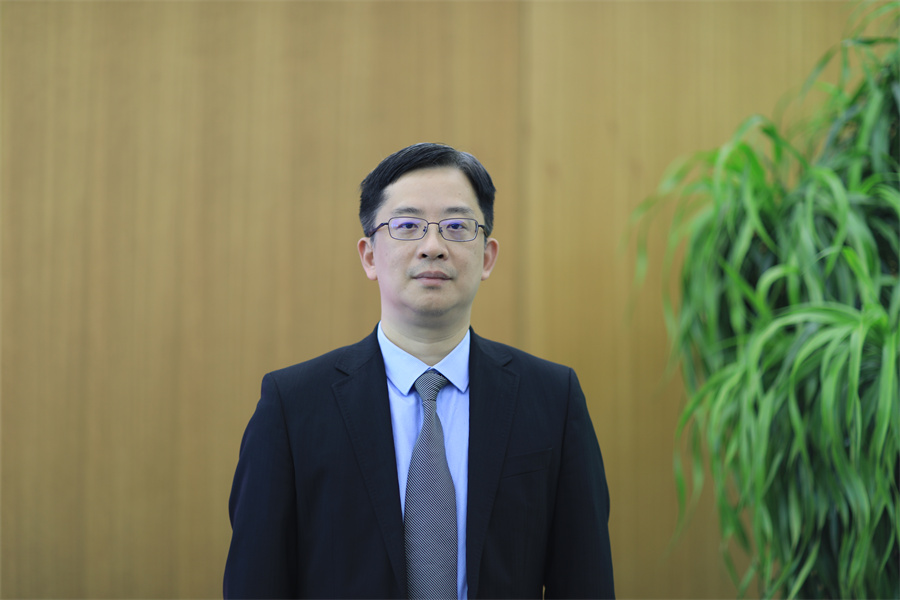'Forceful' steps to aid growth target
Policy measures mitigate short-term impact of US tariffs, expert says


China's economy is well-positioned to withstand the headwinds from the United States' unwarranted tariff policy and maintain its 2025 growth momentum with targeted macro policy support, said a senior economist.
Zhang Jun, chief economist at China Galaxy Securities, said he expects China's economic trajectory in 2025 to resemble a U-shape, with a slowdown in the second or third quarter due to trade headwinds, but a steady recovery driven by fresh stimulus rolled out after a key Party leadership meeting held in late April.
"As long as macro policies continue to be forceful and new measures are implemented quickly, achieving the preset annual growth target of around 5 percent remains possible," he said during a recent exclusive interview with China Daily.
Citing the meeting of the Political Bureau of the Communist Party of China Central Committee, Zhang said the tone-setting meeting came at a critical time as US tariff policies are expected to weigh on China's exports and the broader economy starting from the second quarter, indicating that policymakers are taking a forward-looking, effective and targeted macro policy approach to stabilize overall growth while mitigating external shocks.
Looking ahead, he said concrete steps are expected to follow to stabilize growth, employment and expectations while expanding domestic demand, which will help to offset the impact of US tariff hikes.
For the previously announced government bonds in March, the country is expected to accelerate their issuance in the second quarter, and expedite the utilization of these funds to support concrete projects, said Zhang.
This year, a total of 21 tranches of ultra-long-term special treasury bonds — totaling 1.3 trillion yuan ($179.66 billion), up 300 billion yuan from last year, and with maturities of 20, 30 and 50 years — will be issued from April 24 to Oct 10, according to the Ministry of Finance. "I believe there remains room for additional issuance of ultra-long-term special treasury bonds this year," said Zhang.
Meanwhile, he noted the country will also ramp up fiscal spending for key areas such as healthcare, education, elderly care, and boosting fertility.
On the monetary front, the People's Bank of China, the country's central bank, announced on Wednesday that it will cut the seven-day reverse repos — a key policy benchmark for interest rates — by 10 basis points to 1.4 percent from 1.5 percent, effective on Thursday. And the reserve requirement ratio will be reduced by 0.5 percentage point, unleashing liquidity of around 1 trillion yuan. The cut will take effect on May 15.
"The mechanical action of rate cuts on confidence effects may still well be beneficial, while the bigger 50bp cut to the RRR underscores the supporting role of the central bank's liquidity operations in implementing the government's fiscal stimulus agenda," said Louise Loo, lead economist at British think tank Oxford Economics.
Looking forward, though US tariff hikes may pose short-term pain, Zhang argued that could serve as a catalyst for China's long-term upgrading. "Tariffs are a short-term shock but also an opportunity to push forward China's transformation toward advanced productivity."




































